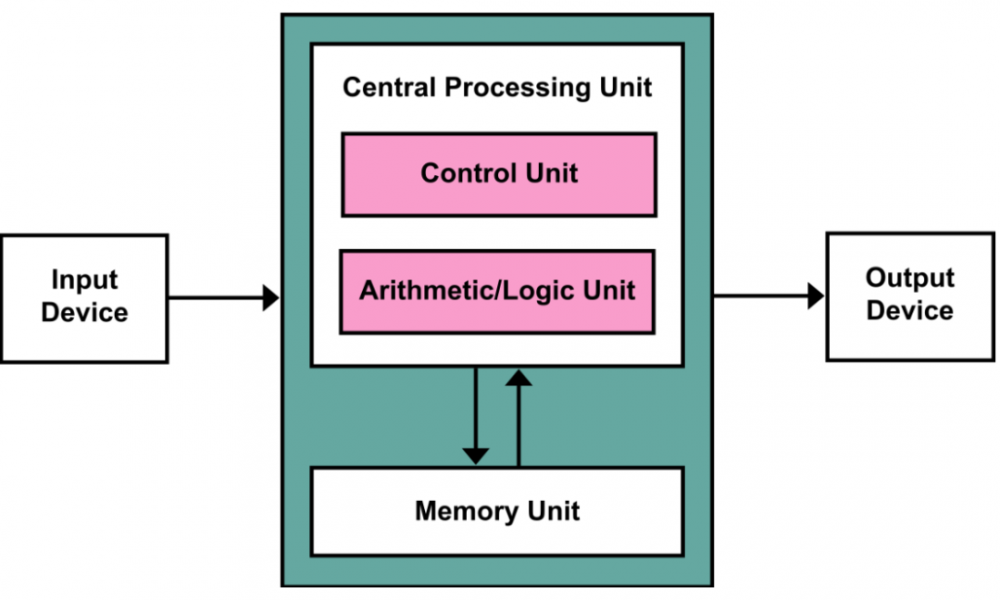Zhuangzi once said, “Life is finite, but knowledge is infinite. To use a finite life to pursue endless knowledge is foolish.” Therefore, the ultimate goal of learning cannot be knowledge itself, because knowledge is superficial, unstable, and prone to becoming outdated. So, what should we learn, and what is truly eternal? We might have many insights, such as studying philosophy, or what is called “philosophical science”; or learning methodology; or studying abstract models, etc. The perfect embodiment of these abstract models is the mathematical formulas we often see. Formulas are like versatile tools; through them, we can understand how the universe and nature operate according to certain laws.
In reality, we find that each discipline has its own abstract models. These models are like the stars in the sky—some are similar, but most are different. Therefore, the expansion of cognitive structure is actually the expansion of the boundaries of models. The more models we have, the richer our cognition becomes.
For computers, what is the unchanging essence? From a physical perspective, the transistors’ capacitors have only two states: on and off. From the laws of light transmission, there are only two voltage levels. This corresponds to the digital world’s 0 and 1 (except for quantum computing). By adding one or more capacitors, or one or more lines, we can have 2 to the power of 4/8/16/64 states. With the development of nanotechnology, the increase of multi-core CPUs, and the emergence of 5G high bandwidth, the number of states that can be represented and transmitted at the physical level will continue to grow. No matter how complex the virtual world is, tracing back to the origin, from a physical perspective, we can start with capacitors; from a mathematical perspective, we start with binary; and from a philosophical perspective, we start with yin and yang.
The process of powering on a computer is very similar to the Big Bang of the universe. Next comes the journey of bits. During this journey, bits move from the disk to the bus, to memory, and then to the CPU. A bit passing through a function factory might generate 80 bits, and after traveling around the Earth, it might increase by an exponential number of bits. Thus, this is a world built on a stable underlying logic constructed by philosophy; it is a world of bits built by mathematics with infinite state representations; and it is an extremely efficient world based on wave-particle duality.
The von Neumann architecture, for example, from the perspective of the pyramid structure of computers, remains stable to this day, whether it is for PCs, mobile devices, or the emerging Internet of Things architecture. The core components of a computer are still the same few things: the arithmetic unit, memory, control unit, and input/output devices. The difference lies in the improvements in performance, power consumption, and other aspects.
If you want to understand the underlying principles of various computer languages, then topics such as syntax analysis, lexical analysis, semantic analysis, regular expressions, and finite state machines are unavoidable. Therefore, the principles of compilation have not changed much. So, whether it is the popular Go and Rust, or the established Java, C/C++, Python, or languages like JavaScript and C#, we should not focus on the vastly different syntaxes but rather the underlying compilation methods. No matter how future languages evolve, whether they are scripting languages or compiled languages, and no matter how strange their syntaxes may be, you should know that they all need to construct syntax trees, perform lexical and semantic analysis, and translate syntax trees into binary language.
The principles of distributed systems are the same for distributed storage systems in terms of how they implement data replication. The earliest known source of this principle is a 1978 paper by Lamport titled “The Implementation of Reliable Distributed Multiprocess Systems.” In 1978, folks, none of us were even born yet! Such an old technology is still widely used today! No matter how fast application technologies develop, the methods for solving problems, or the theoretical foundations, have not changed much. Therefore, while you are constantly learning new application technologies, you also need to think more, summarize, and reflect, which will make it easier and faster for you to learn new technologies. Whether in relational databases like MySQL and SQL Server, or in non-relational storage engines like Redis and MongoDB, they all use the state machine principle of data replication. For example, many search engines (like Elasticsearch) and message queues (like Kafka and RabbitMQ) are also copying each other’s work, and with the so-called “new technologies” this pseudo-concept continuously emerging, the copying will become more and more frequent.
Agnosticism Einstein said that the universe is like a pocket watch, and I know nothing about what is inside. Agnosticism does not mean that we truly know nothing, but rather that we assume by default that we know nothing and then re-examine the authenticity of our thoughts. It is a questioning of the authenticity of the foundation. Because the world is dynamic, our senses are unreliable, and existing knowledge has gaps, yet we tend to use experience to measure and make decisions. Therefore, if we can thoroughly doubt everything in the past and assume that our thoughts are wrong, then the pursuit of truth will be one step closer. For example, as business expands and concurrency increases, we can no longer resist the increasingly decaying code through patching. Only by re-examining the underlying architecture, or even tearing it down and rebuilding it, can we temporarily meet the current business needs. As for how the system will evolve in the future, it is unknown. Agnosticism should be about pursuing the knowable from the perspective of the unknowable, which is a devout attitude towards learning.
Universal skepticism is not about being profound for the sake of skepticism, because the universe is an integrated whole, chaotic, and the division and naming of disciplines are not eternal names (the nameable is not the eternal name). Therefore, when a discipline is considered as a perspective, it is inevitably like seeing different aspects of a mountain, and how can it be eternal? Universal skepticism decouples the self and thoughts, and seeks the truth separately for the body occupied by thoughts and the thoughts themselves. Descartes said that the body cannot be proven to exist (bing); how can we be sure that we are not living in a virtual world? In other words, how can we know whether we are butterflies in a dream or whether we have become butterflies in a dream? However, this dream is real, and only the thinker is real. Finally, he came up with the famous saying “I think, therefore I am.” Universal skepticism is actually giving our thoughts a bath, pouring out all the apples of thought, including both the rotten and the good ones, and then reorganizing and categorizing them. Einstein took out Newton’s apples, found that the law of universal gravitation does not apply to the microscopic world, and finally proposed the theory of relativity. It is evident that universal skepticism is an important tool for breaking collective beliefs and innovation.
Thought ≠ Self When we are criticized, we instinctively become emotional because we identify ourselves with our thoughts. Disapproval of our ideas feels like disapproval of ourselves, so we get upset! Consider this: am I my thoughts? Teacher Li Shanchang said, “It is not that I possess thoughts, but that thoughts possess me.” My understanding is that our thoughts are but shadows of the wisdom of our predecessors, which we have internalized and integrated with our bodies through long-term use. So, the question arises: are we defending ourselves or our thoughts? If we are defending our thoughts, why be emotional? If our own cognition is flawed, should we not “rejoice in being corrected”? When we become emotional due to others’ disapproval, it is often because we equate our thoughts with ourselves, which is a significant barrier to learning and progress, because thoughts are not equivalent to our physical being.
Independent thinking When it comes to independent thinking, let’s start with the herd mentality in the evolution of Homo sapiens. In ancient societies, the purpose of conformity was to seek a sense of security, initially to fend off wild beasts and later for group recognition. The negative effect of conformity is irrational ignorance, a collective unconscious blind following. Because of the pursuit of safety and group approval, people distort their own thoughts and lose the ability to make independent judgments. Although this consequence is terrifying, this kind of blind following is still ubiquitous to this day, because the need for a sense of security still exists in organizations. If we cannot deeply understand this phenomenon, then our own thinking is also dangerous. Independent thinking is painful. Many people would rather die than think; Wang Xing said: “Many people would do anything to avoid thinking.” I believe that the thinking referred to here is systematic, model-based, abstract, and rational logical thinking, not our daily emotional or imaginative thinking. The way of thinking that represents the computer world is more accurately mathematical thinking, which is a kind of calculation oriented towards industry and application after digital modeling of all things. Therefore, a sense of numbers and mathematical thinking are the internal skills for learning computers, although they may not be obvious at present.
In summary, from the perspective of learning goals, what we should learn is not knowledge itself, but abstract knowledge models, like a universal key that can unlock the doors of various kinds of knowledge. From the perspective of learning methods, we can use universal skepticism, agnosticism, decoupling of thoughts and the self, and removing the inertia of blind following to think, to cleanse our thoughts themselves, and to examine and question logical thinking. To borrow Buffett’s words: “If in any year I have not destroyed a belief that I once held very strongly, I consider that year a waste.”





No comments